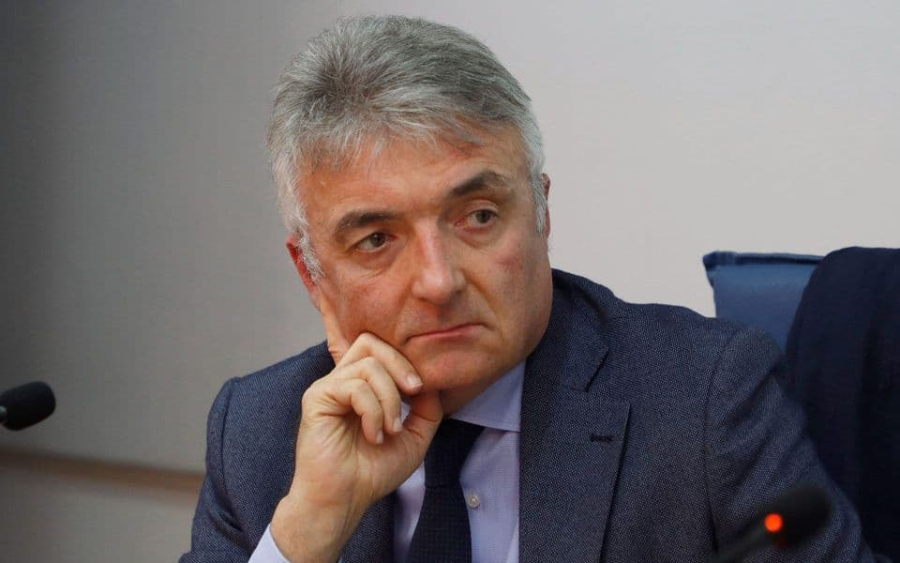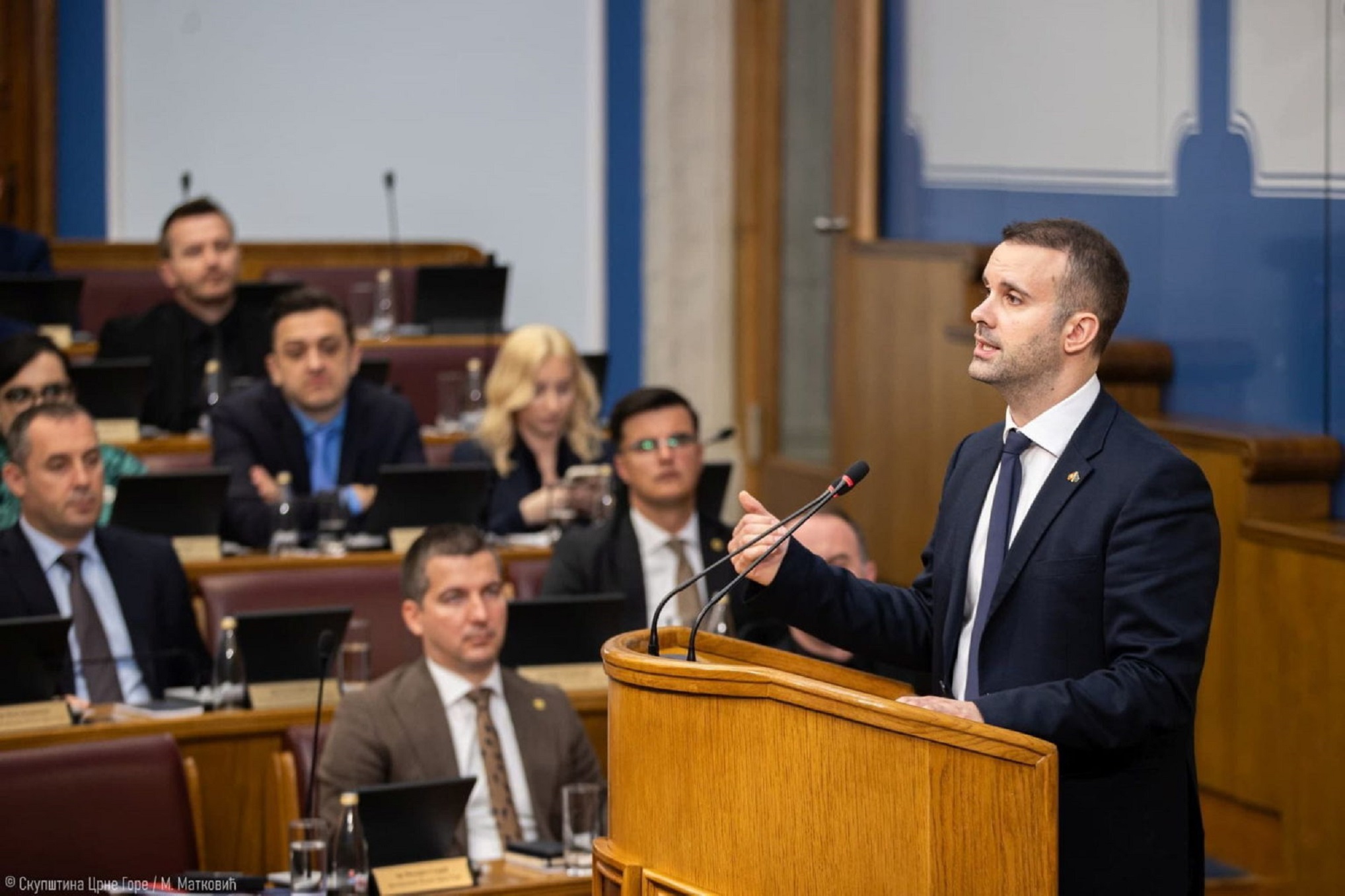It is still unknown who gave the idea to Milojko Spajić and his government to submit two amendments to the draft UN Resolution on remembrance and commemoration of the 1995 genocide in Srebrenica.
Until then, the Montenegrin authorities were under strong pressure from over a hundred NGOs to support that resolution, in the status of “co-sponsor”. The answer from the Government was negative. Cabinet of Mr. Spajić and the Ministry of Foreign Affairs Mr. Ivanovic were kept silent. And more than that: Prime Minister Spajić ironically avoided answering a simple question from Al Jazeera Balkans journalist about co-sponsorship. His mockery on that topic was one of the ugliest moments of his tenure so far.
That is why the two Montenegrin amendments aroused curiosity: whose initiative was it, who gave the idea, who drafted them?
In the Government’s announcement that followed, one clumsy mistake was made: the Montenegrin proposals are going to New York “via the USA”, it said. The American Embassy in Podgorica immediately denied this: “we were informed about the amendments, but we do not have an intermediary role”.
That detail, in addition to justified criticism at home – how is it possible for the MFA of Montenegro to publish something that the Americans immediately deny – also caused speculation: is Washington actually behind this move by Podgorica?
The amendments sounded so “Serbian-Russian” (there is no collective guilt for the nations, first, and preservation of the Dayton constitutional-legal framework in BiH, second), and their initiation comes from the West? It would not be the first time we encounter such “coincidences”.
And one of the two “penholders”, Germany, emphasized the need and importance of all countries of the Western Balkans to be together in support of the Resolution. If Serbia has allies in its refusal, then the whole project and reason for condemning and commemorating the genocide has a completely different dimension.
Whatever happened behind the scenes, the effects of this Montenegrin/”Montenegrin” diplomatic initiative emphasized several significant constants, both Serbian and current Montenegrin policies and positions, but also their complex and burdensome relations.
First, the UN negotiation process itself took place without the participation of Montenegro. This is confirmed by the angry reactions from Belgrade, as the final wording of the two amendments (which, in a significantly changed content, are included in the preamble of the Resolution, i.e. in the so-called “introductory statements”) were created in the “narrow circle of co-sponsors of the Resolution”.
Belgrade (and Moscow) are dissatisfied. The final version of the first amendment emphasizes criminal liability, which cannot be collective. This implies that other types of responsibility can be. Neither Vučić’s Serbia regarding Srebrenica, nor Putin’s Russia regarding Buča and the entire aggression against Ukraine, can be satisfied. Far from it!
Second, reactions from Belgrade towards Podgorica are gaining momentum. After a certain lull, Serbian messages to Montenegro have all the characteristics of threats and insults. The new Minister of Foreign Affairs, Marko Đurić, also joined the campaign: he talks about the “lying fraud” (?!) of Montenegro. Prime Minister Spajić’s coalition partners in the Assembly – Serbian-Russian allies from the New Serbian Democracy and the People’s Democratic Party – are not far behind: they continue to call on the Government not to vote for the Resolution.
It’s not so much the amendments that bother them, but the definition of what was committed in Srebrenica in July 1995: genocide.
The answer of the Montenegrin side, with the exception of some passages in the statement of Minister Filip Ivanović, exudes inferiority, permissiveness and – fear. Prime Minister Spajić and his Movement Europe (PES) are now issuing incoherent communiqués, in which, for reasons and burdens known to them, they are still fighting the battle with the once-ruling Democratic Party of Socialists (DPS)!
The path of emancipation of the current Montenegrin government vis-a-vis the mentors from Belgrade – if it ever comes – will be very long and painful. (Whether Montenegro can survive that process is a separate question.)
Finally, the third: Vučić and his followers and allies in Montenegro have, in addition to everything mentioned. pursued another mechanism to compromise and jeopardize formal Montenegrin sovereignty and the Montenegrin European agenda: they forced Prime Minister Spajić and the deputies of his PES to sign the initiative to pass the Resolution on Jasenovac (the infamous Ustasha concentration camp from the WWII).
This is not only a direct “finger in the eye” to Croatia, which has already reacted with a public note of protest due to the very mention of that initiative, but also the best indicator of the brutal instrumentalization of Montenegrin politics by the centers of political and intelligence power in Belgrade.
The same initiative in the National Assembly of the Republic of Serbia was repeatedly rejected in 2021 and 2022. Recordings with the statements of Aleksandar Vučić denying the need for such an act of the Serbian Parliament do not bother his representatives in Montenegro: worsening relations with Croatia is the easiest way to compromise the Montenegrin EU agenda. Additional divisions and confrontations in Montenegrin society are just a bonus in the current situation.
The destabilization of Montenegro remains a permanent factor of Serbian politics.
That is why May 23 – when the UN General Assembly is scheduled to vote on the Resolution on Srebrenica – is eagerly awaited. How Montenegro will vote is a test for the next phase of Montenegrin-Serbian relations, but also for the basic credibility and sustainability of the 44th Government of Montenegro.
Anything but a “yes” vote would be a huge shame for Montenegro. Other political mistakes and indignities can be corrected. A wrong vote in the UN regarding the genocide in Srebrenica would definitely disqualify Milojko Spajić and the PES policy – which are already in a serious crisis.
The articles published in the “Opinions” column reflect the personal opinion of the author and may not coincide with the position of the Center
Miodrag Vlahović. Montenegrin politician and former diplomat. The first Minister of Foreign Affairs of Montenegro. Former Montenegro’s Ambassador to the USA, Canada, Iceland, Holy See, Order of Malta.




